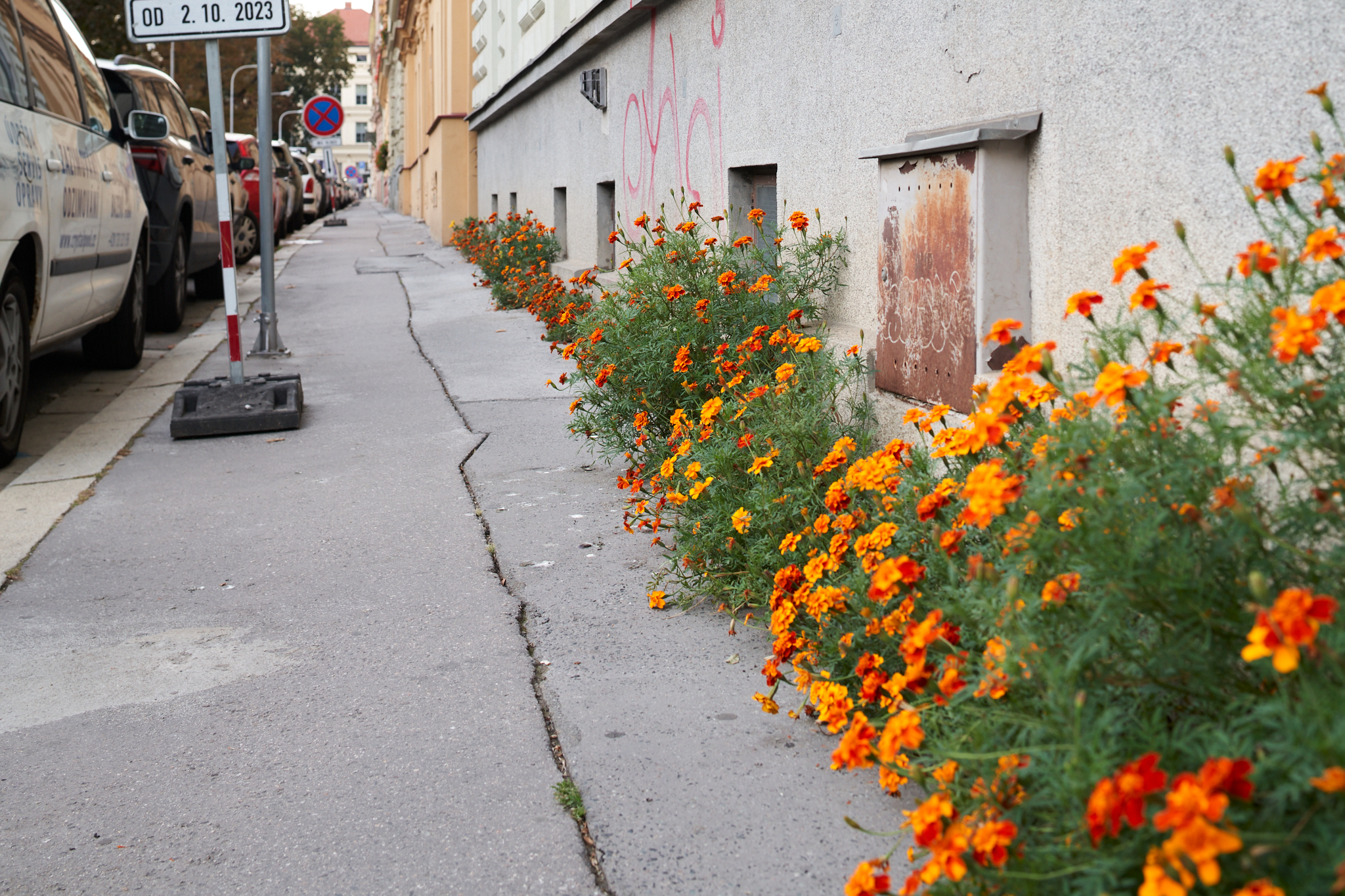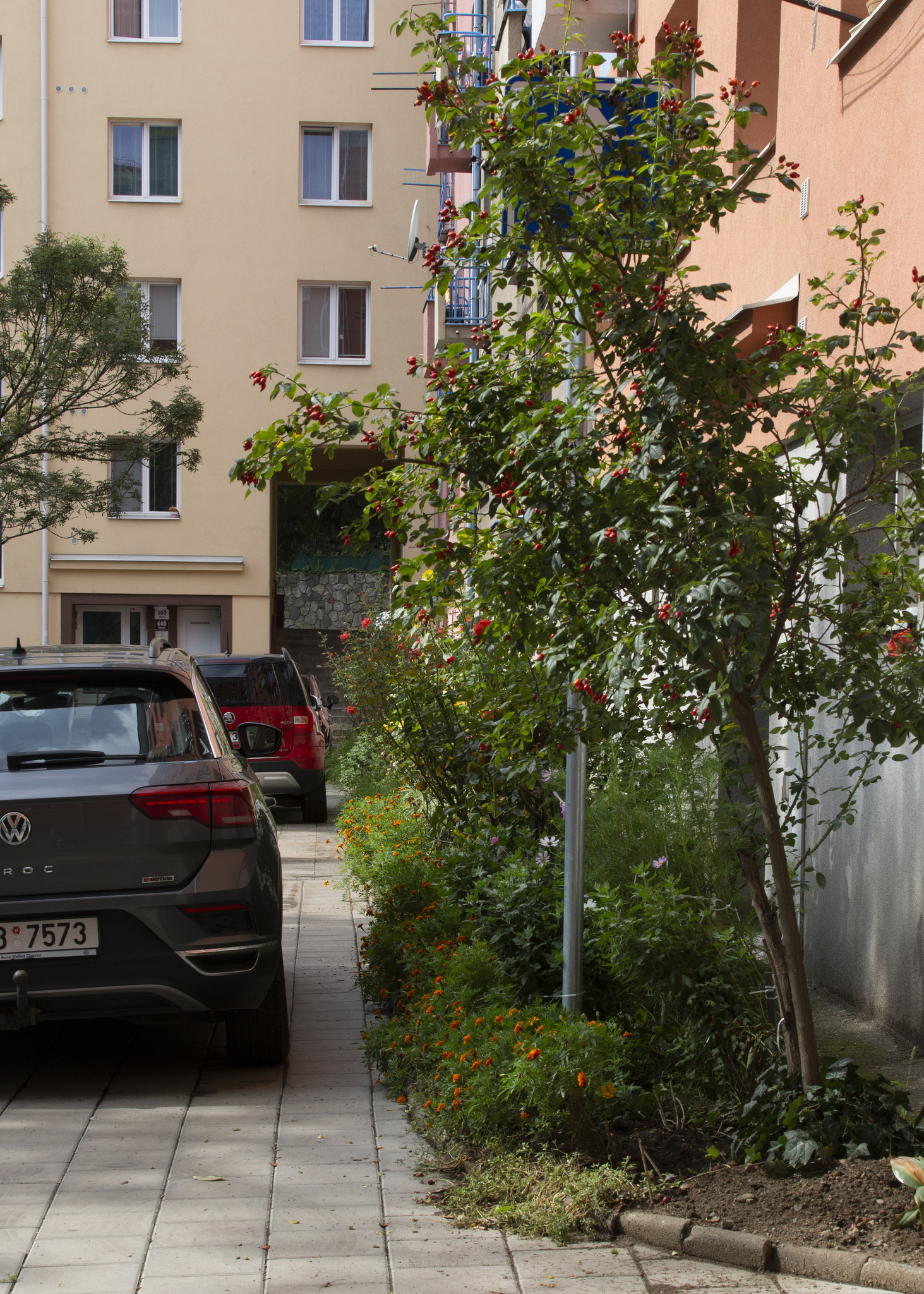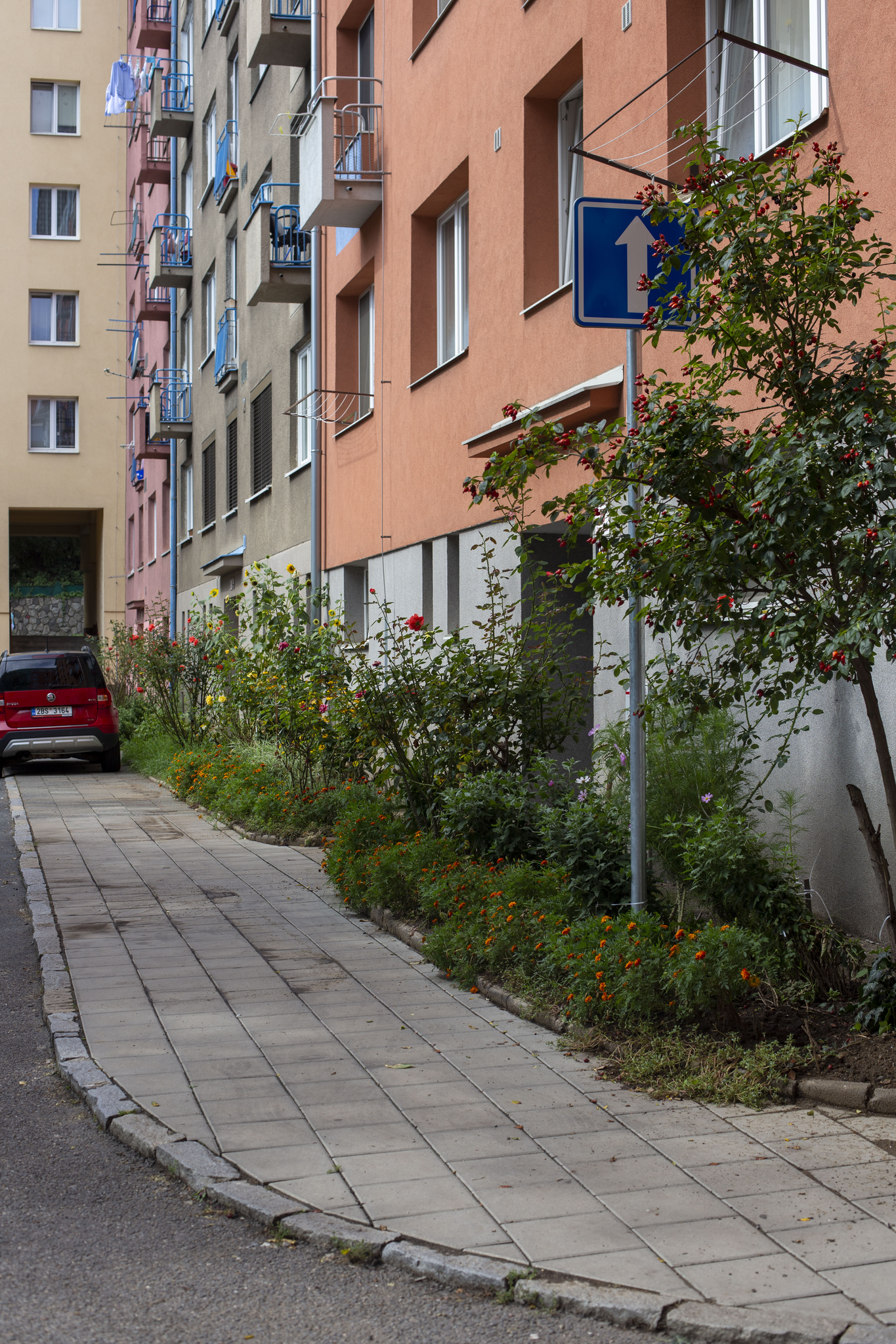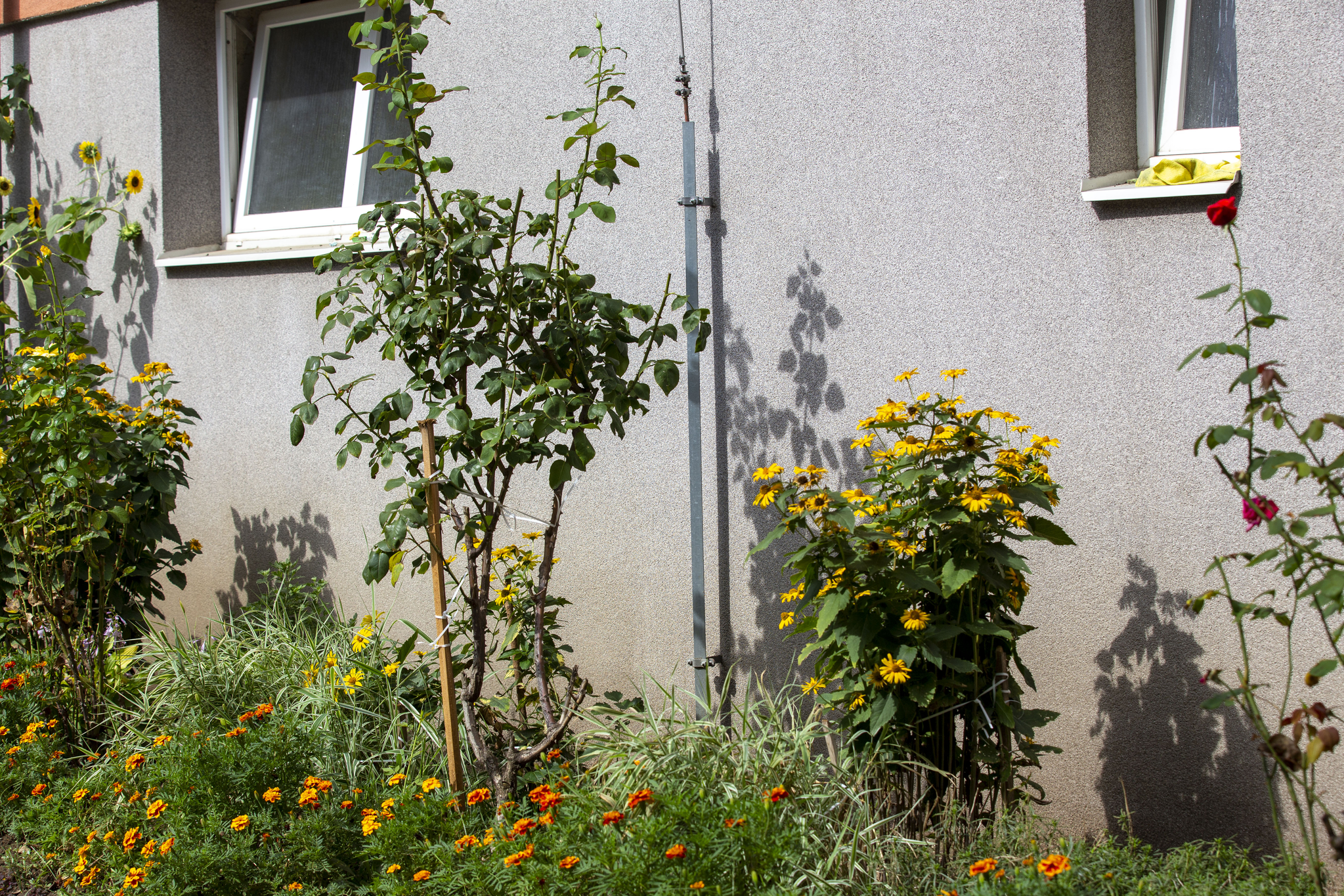3. The Gardens
Hana Drštičková, Anastasia Blokhina
The gardens in front of apartment buildings are often created "invisibly." Most people never ask themselves who actually takes care of them. One such front garden that we included in our research is the result of care and attention from several generations of older women – the sort of people whose work, often nursing or care work, gendered work, receives the least appreciation. And this despite the fact that they often occupy a crucial position in the local community, and possess knowledge that would otherwise disappear. One area of this knowledge is that of plants, their species and cultivars, their history and their needs. The women are able to pass this knowledge on precisely by maintaining the semi-public space of the front garden with specific types of plants that they have kept alive through physically demanding watering and weeding.
The sight of these plants infuses the surroundings with evidence that these women exist (that is, if the view of the garden is not blocked by some car parked on the sidewalk or halfway into the flower bed, as is often the case, and which causes a great deal of anger).
When we talk to the current caretaker of the front garden, we are amazed at the amount of knowledge about plants that she manages to put into her torrent of words. In addition to their physical form, a seemingly endless world of names and descriptions of different varieties and subspecies of flowers, herbs, trees, and shrubs is revealed to us. And not only the official, common names, but mainly local and popular names and nicknames, collected across generations, family, and friendship networks. These names can be secret, half-lost, forgotten even by the gardener herself, they can express affection and the relationship between man and plant across time, they can be intimate, formed by experiencing diversity in taste, in ripening time, in texture. We capture at least some of this name-knowledge in the recording.
Audio stop translation:
A long cactus... it’s blooming beautifully
Zwetschge plum – not round
“Große Knorpel” cherry tree – good, very good
Sweet honey greengages
Greengage, which currently fetches a pretty penny
Three pear trees that shaded to keep the duvets cold, until they ripened at Christmas
Cockchafers –Maikäfer – you have to shake them off
That’s marjoram, it's not a weed
Peonies on the procession to the little church, where flowers were scattered
Son wanted a fig tree
Black currant, white currant, red currant, and jostaberry – that’s like gooseberry
The golden fig gooseberry, it’s not hearty, it may not survive
Blueberries in containers, they look more like currants
The cherry laurel, which was supposed to be an orange tree, fell this year, that was a lot of work
In the summer, we went out for pinecones, it was enough to warm up leftovers from lunch. Wood chips, softwood, and hardwood – if you’re baking danishes
She liked the rose of jericho, it stretched out along here
A normal, ordinary wild rose
Cherry laurel, such a tiny one
Crocuses for government money
Snowdrops, the big ones, snowdrops that really grow in the snow (there’s not much snow anymore)
The blue ones, what are the blue ones called, they have leaves like chives, grape hyacinth
Rosebud, that was put under glass, two buds in the ground and two under the glass and they took hold
The pine that was planted when my grandson was born
A beautiful white rose with many separate flowers, some kind of fancy breed
A laburnum, sometimes it takes root if you put it in a vase
Lemon balm, mint, from time to time I give them away
If the tomato has a black spot, we get on it right away
Garden cosmos, it's back in fashion now
There were plants that suddenly died – they were little red and white bleeding hearts
Black elderberry, a whole field
That was an herb or something medical-like
Autumn blooms
Ordinary twigs
The seeds look similar to carraway
Autumn chrysanthemums
Superstar flowers that people put here three generations ago
I’m glad that I put sunflowers here
Common, standard irises
Echinacea for immunity





